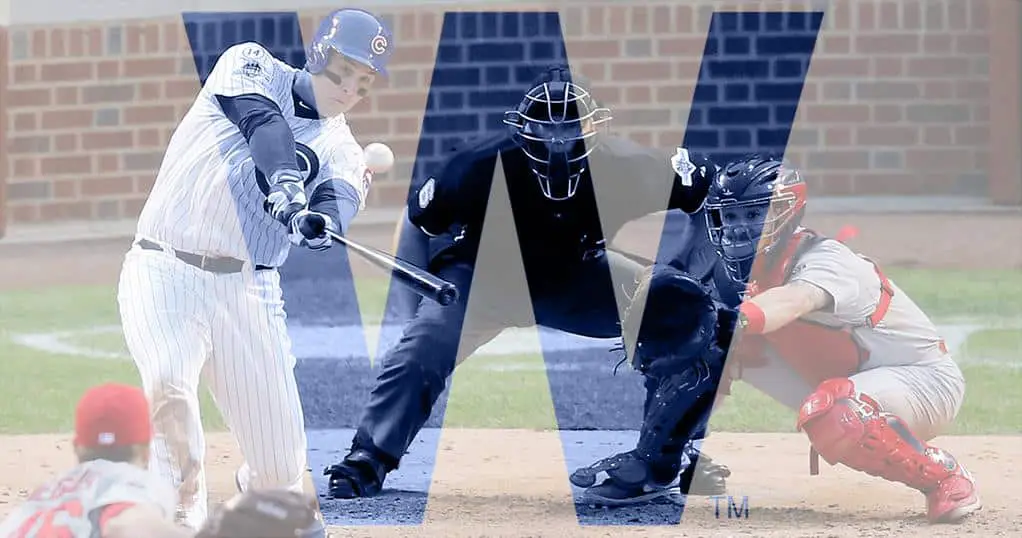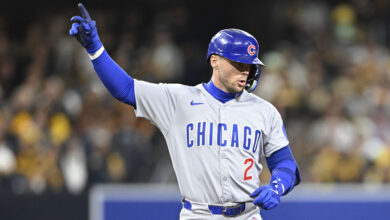
Unless They Win it All, The Cubs Can’t Win
It wasn’t that long ago when a cluster of sports writers in Chicago was aggressively dumbfounded by what the Cubs were doing. They “didn’t get” why Albert Pujols and Prince Fielder weren’t being pursued, why veteran starters like Jeff Samardzija and Scott Feldman were being dealt, or why a decent guy like Ricky Renteria was being unceremoniously booted after one season.
The tenor and subtext of all of that criticism was pretty obvious:
So, the Cubs are going to be all transparent and methodical with this entirely sensible rebuilding plan? Well, then there needs to be an adversarial, contrarian counter-angle staked out, one that holds people accountable – for journalism! – no matter how painfully indefensible that angle ends up.
Mind you, all of this was in spite of the fact that no one – in the Cubs front office or elsewhere – had guaranteed anything. No one guaranteed that trading Andrew Cashner for a then-scuffling Anthony Rizzo would be the right move, or that none of those high-ceiling arms they passed on in the draft would develop into aces, or that each one of those “consensus” top prospects in the Cubs’ universally loved farm system would pan out.
No one expected the Cubs to finish 2015 with 97 wins, either. The third-best record in the game? Coming off of an 89-loss season? With virtually no trade-deadline deals to help tick up that win total? Come on now.
So, it’s a really special kind of egregious when the Sun-Times’ Rick Morrissey sits down and fires out this cleverly impenetrable narrative:
It will be disappointing if the Cubs don’t win the World Series next season. And it’s absolutely fair to expect such a thing after a fantastic 2015.
Morrissey couches that thought a bit by acknowledging that it’s a reflection of the job that Epstein, Hoyer and McLeod have done. But he gets right back to it:
The idea, we’ve been told again and again by Cubs brass, is ‘sustained success.’ But the real goal is a World Series title in the season that is in front of you. That’s 2016. Add a couple of pitchers to the rotation, and the Cubs should indeed be the World Series favorite. Anything less would be a bummer.
Where to begin?
Well, for starters, it’s a pretty brazen moving of the goalposts to just completely shift a narrative four full years in the making. The criticism all along had been that the Cubs’ approach was aggravatingly patient, that there were supposedly faster ways of building a contender. Ways that didn’t require tanking and selloffs, and that didn’t predicate so much on the panning out of prospects.
So now the plan didn’t just work, but worked so well that the team better win the World Series immediately, or else it’s an epic letdown? That’s pretty rich.
Then there’s this fallacy: “expecting” a team to win a given year’s World Series. If it hasn’t already been beaten to death by baseball reasonists like Joe Sheehan, no team – ever – is “expected” to march through the entire MLB postseason, no matter how unbeatable it looked heading into the playoffs.
The baseball postseason isn’t fair. It’s a crapshoot, a tournament of suddenly unstoppable hitting, randomly unhittable pitching, and sequences of general fortune and misfortune that send one team home and another one step closer to a parade.
So, what do you say we calibrate the expectations a bit more reasonably? How about “making the playoffs?” Lest we forget, the Cubs are competing in an absolute Group of Death of a division, winning nearly 100 games, securing the third-best record in baseball and still only making the cut as a road Wild Card contestant this fall.
If folks like Rick Morrissey see it as the Cubs either winning the next World Series or failing, will they apply that same simple-minded, binary judgment to the Pirates and Cardinals? Or is this just a special case with the Cubs, because they’ve been custom-fitted for a narrative of logic so pretzled that anything short of ultimate success will be portrayed as failure?
Good luck next year, Cubs. The takes will be waiting.

